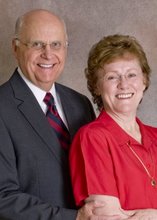Sure enough, several months later the horse returned bringing with it several other horses. “How fortunate,” said the neighbors. “We’ll see,” said the man. While his son was attempting to break one of the horses, he was bucked off and broke his leg. “What a great misfortune,” said the neighbors. “We’ll see,” said the man.
During the son’s recuperation, the army swept through and forcibly inducted all the healthy young men of the village, but the son with a splint still around his leg and on crutches was exempt. How fortunate for him since all those caught up in the military campaign met with untimely deaths.
This story could go on and on, but enough has been told for us to see interesting parallels in our own lives.1
The Farmer of Xian
In the same land where this story took place I recently met a man whose own life story could be a modern version of the ancient one. In 1974, as an impoverished farmer he was digging a well when he happened on what appeared to be pottery fragments. More digging brought up the pieces of a ceramic head.
An interesting find, thought he; maybe even a turn of good fortune.
“Not so,” said his father when the man brought his find home. Citing the ancient Chinese suspicion of burial grounds and the dead, the father thought that bringing an unearth clay image of a head into the house could bring only misfortune. Although the family tried to conceal this find, word eventually leaked out, and the authorities began excavations of the site.
Of course what the farmer had discovered was what is now known as the famous terra-cotta warriors of Xian, China.2 The find has been a boon for the Chinese and the government has carefully preserved the site. Today it is a busy tourist attraction and undoubtedly a welcome source of income for the government.
A few of the terra-cotta warriors, as photographed by the author in 2007.
But what of the farmer? Did fortune or misfortune visit his house? He did receive a reward. It wasn’t much: a new wheelbarrow. The government at the time had more egalitarian views, and rewards that raised one individual above the collective were frowned on. Nevertheless, a new wheelbarrow could be considered as fortunate indeed. But after this early recognition the farmer returned to his farm and faded into obscurity.
Until 1998, that is, when U.S. President Bill Clinton visited Xian. After the official tour of the terra-cotta warriors he asked what had become of the farmer and expressed an interest in seeing him. A meeting was arranged, and all of a sudden the misfortune of obscurity appeared to turn into the fortune of celebrity.
All this high-level attention paid to the farmer prompted authorities to think the farmer might play a more prominent role in this important tourist site. Accordingly, the farmer was provided a place in one of the museums where he could sit and interact with the tourists, and receive some belated recognition for the role he had played in the site’s discovery. Here the farmer could retire from the rigors of farm life and enjoy his declining years in comfort. Many would say this was fortunate, indeed.
But the farmer did not consider it so. The museum was a non-smoking building and the farmer missed his pipe.
Eventually another location was found and now the farmer sits in the souvenir shop, signs autographs, and enjoys some degree of celebrity status. You can see him there today, enjoying what seems a turn of good fortune at last.3
Fortune or Misfortune?
And so it is with all our lives. Seeming misfortunes turn out to be blessings. And what may seem like an answer to our heart’s desire fades with time and perspective.
How many times have we heard someone say that a seeming catastrophe ended up being a blessing in disguise? A man loses his job but ends up with another with better circumstances and remuneration. One door closes, but others open up. A family tragedy has the unforeseen consequence of drawing family members closer together. In the eternal perspective the tragedy itself may have little import, whereas family togetherness will.
I’m certain that as Paul lay stricken and blind on the ground on the way to Damascus he thought a great misfortune had befallen him. But a new world was about to open for him. Had the Lord not intervened in the course of his life it is likely that few would know his name today, but the sudden turn of events, as unfortunate as they seemed at the time, ensured that his name would be known for good among Christians around the world.
The next time we lose a metaphorical horse and count it as misfortune, perhaps we would do well to pause and reflect, even as the Chinese of old, on the words, “we’ll see.”
1 - For an alternate version of the same story see http://www.chinapage.com/story/losthorse.html
2 - See http://www.allchinanet.com/china_travel/terra_Cotta_Warriors.shtml
3 - Story as related by Chinese tour guide, Xian, China, 4 June 2007

